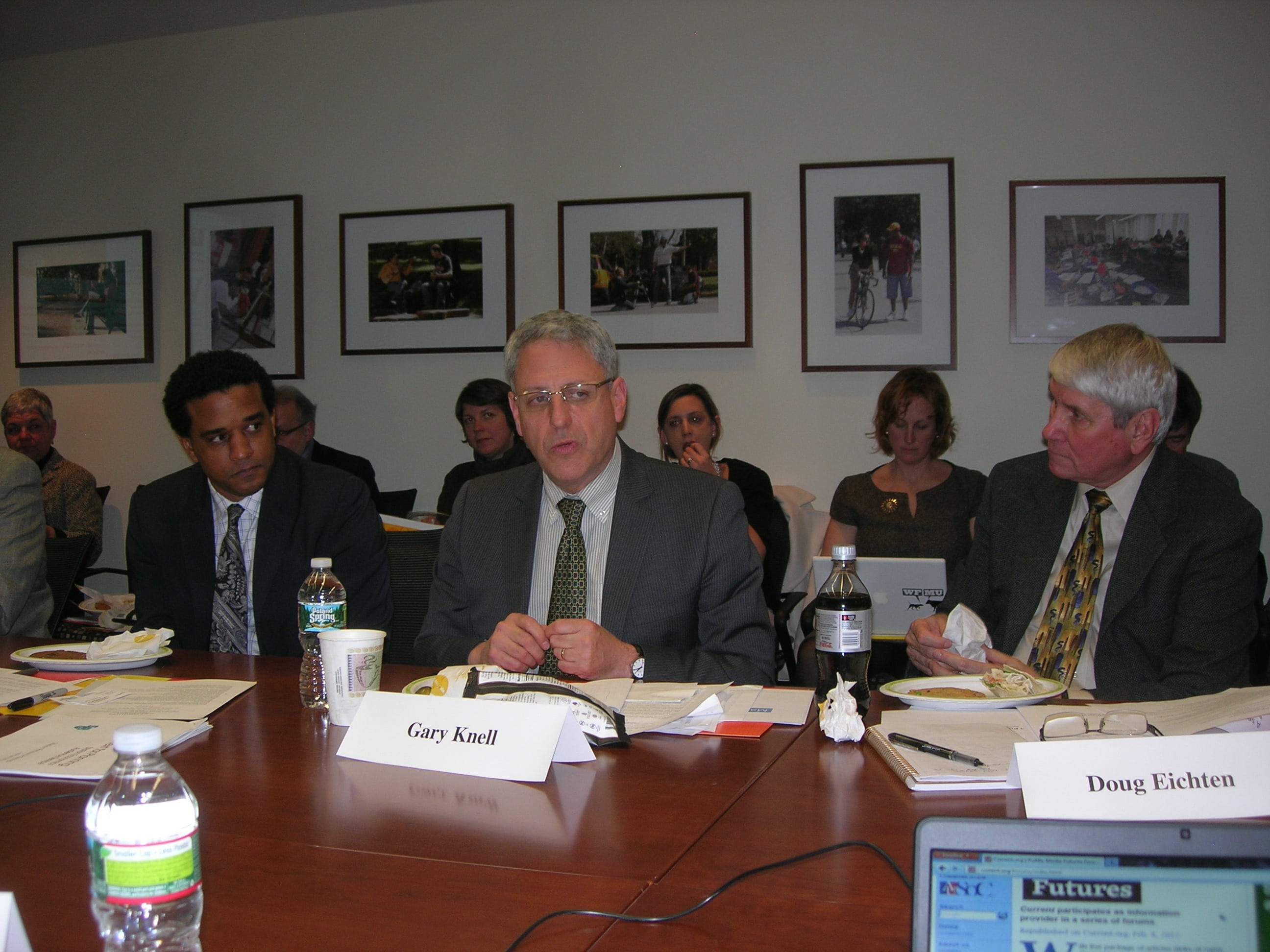 WASHINGTON – Gary Knell, NPR’s new President and CEO, said yesterday that public radio must embrace “four diversities” to broaden its audience and public service.
WASHINGTON – Gary Knell, NPR’s new President and CEO, said yesterday that public radio must embrace “four diversities” to broaden its audience and public service.
Knell, who became CEO of NPR two months ago, said he planned to make NPR more diverse by ethnicity, age, geography, and “thought.”
Criticizing NPR as being “too Washington-centric” and “too Washington think tank-centric,” Knell highlighted plans to reach out to other voices. This follows his comments last year promising to “depoliticize” NPR.
Knell also said he would expand outreach to younger audiences, and he pointed to this week’s launch of an NPR iPad music app as an example.
“Public media must be available on these platforms” that younger people use, he said, such as tablets and mobile telephones – and with content that will appeal to them.
Knell came to NPR after years of running Sesame Workshop, which under his leadership aggressively expanded into Internet distribution. He said the move into digital media was so successful that “Sesame Street” now has a larger audience on the Internet than on television.
Knell made his remarks at a CCLP forum at the USC Washington DC conference center. The meeting was part of a quarterly series that began last summer and continues as part of a larger CCLP partnership with Current magazine and Current’s publisher, American University.
Yesterday’s forum focused on early research and reporting by the CCLP-Current partnership, including the weak and weakening financial situation faced by public television.
Many in yesterday’s forum urged for more appeals to individuals who can make very large contributions of $1 million or more, but others said this seemed to be an appeal “to the one percent” when public media should be serving “the 99 percent.”
Asked how Sesame Workshop was so successful both serving non-affluent families and enjoying solid financial backing, Knell said one technique was to focus on “targeted communities” with public service. A recent example, he noted, was Sesame Workshop’s outreach to families of US soldiers deployed to Iraq and Afghanistan.
“We have to be focused on outcomes,” he said. “That is the difference between public and commercial media.”
By focusing on the needs of military families, Knell explained, Sesame Workshop attracted funding from new sources that have not usually supported public broadcasting.
Asked if he had another revenue secret to share, Knell had a one-word answer:
“Elmo.”
And indeed, $48 million – one-third of Sesame Workshop’s annual total revenue – comes from toys and “product licensing,” according to its latest annual report.
Can a Nina Totenberg doll be in the works?
Documents from the meeting:
Haarsager-Media Futures Forum2.ppt
Mapping Public Media_revised.doc
Related: Read coverage of the forum by Steve Behrens, editor of Current, focusing on financial issues discussed.